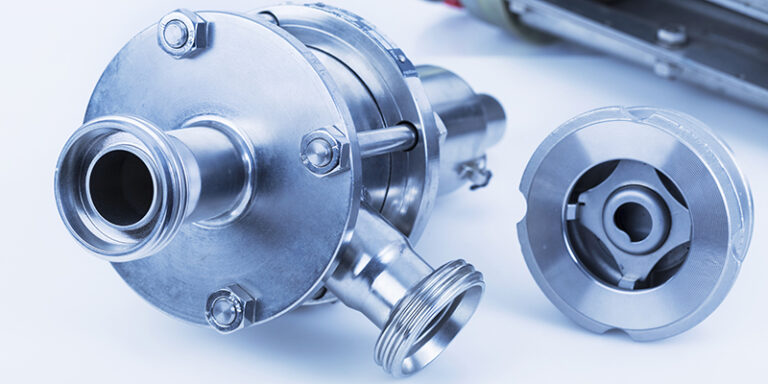Backflow preventers are an important part of plumbing systems, but many people don’t know what they are or why they’re needed. In this blog post, we will discuss what backflow preventers are, how they work, and why you need one in your home or business. We’ll also answer some common questions about backflow preventers to help you decide if one is right for you.
What is a backflow preventer and what does it do?
A backflow preventer is a device that is installed in your plumbing system to protect against contaminated water from flowing back into your clean water supply. Backflow can occur when there is a sudden change in pressure in the water lines, such as during a water main break or firefighting efforts. When this happens, dirty water can flow back into the clean water lines and contaminate the entire system. Backflow preventers are designed to stop this from happening by creating a barrier between the two systems.
How does a backflow preventer work?
Backflow preventers work by using check valves to keep water flowing in one direction only. These valves allow water to flow through them in one direction, but they close automatically if water tries to flow back. This prevents contaminated water from flowing back into the clean water lines. Backflow preventers also have air gaps or vents that allow air to enter the system, but they keep water from flowing back out.
Why do I need a backflow preventer?
Backflow preventers are an important part of any plumbing system, but they are especially important in systems that use chemicals or other hazardous materials. These materials can contaminate the entire water supply if they are allowed to flow back into it. Backflow preventers can also be used in irrigation systems to keep contaminated water from contaminating plants or crops. In a household setting, backflow preventers can protect your family from drinking contaminated water.
What are the benefits of having a backflow preventer?
Backflow preventers offer many benefits, including protection against contaminated water, improved irrigation systems, and potentially lower insurance rates. Backflow prevention can also save you money by preventing damage to your plumbing system and avoiding costly repairs.
How do I know if I need a backflow preventer installed on my property line water system?
If you have a well or spring on your property, you should have a backflow preventer installed. Backflow preventers are also required in many commercial and industrial settings, such as businesses that use chemicals or other hazardous materials. You may also need a backflow preventer if your local water supplier requires it.
How much does a backflow preventer cost?
Backflow preventers vary in price depending on their size and type. Small backflow preventers can cost as little as $50, while larger ones can cost more than $1000. Backflow prevention devices can also be purchased as part of an irrigation system or plumbing system. The cost of installation will vary depending on the type of system you have and the complexity of the installation.
What are the maintenance requirements for a backflow preventer?
Backflow preventers require very little maintenance. You should have your backflow preventer tested once a year to ensure it is working properly. Backflow testing can be done by a certified tester or plumber such as Bodenheimer Plumbing Services.
Bodenheimer Plumbing Services: backflow preventer testing and repair
At Bodenheimer Plumbing Services, we offer backflow preventer testing and repair services. We can test your backflow preventer to ensure it is working properly and make any necessary repairs. We also offer a wide range of other plumbing services, including drain cleaning, leak detection and repair, water heater installation and repair, and much more. Contact us today to schedule a consultation. We look forward to serving you!
ou spot them.
The Importance of Your Home’s Water Heater
It’s always a good idea to be proactive about water heater repair. If you can catch small problems before they turn into bigger ones, it will save you time and money in the long run.
Signs Your Hot Water Heater Could Use Repair or Replacement
1. The water heater is making strange noises
If your water heater is making strange noises, it could be a sign that the tank is starting to corrode. If you notice this, it’s important to call a plumber right away.
Another possibility is that the anode rod has worn out and needs to be replaced. This is a common problem with water heaters. Anode rods are responsible for protecting the tank from corrosion. Over time, they will eventually wear out and need to be replaced.
Water heaters can also make strange noises when the sediment buildup gets too high. This is a common problem and can be fixed by draining the water heater.
If you’re not sure what’s causing the noise, it’s always best to err on the side of caution and call a plumber. They will be able to diagnose the problem and make any necessary repairs.
2. There is water leaking from the tank or around the base
If you notice water leaking from the tank or around the base of the water heater, it’s important to call a plumber right away. This is a serious problem that needs to be fixed as soon as possible.
Water heaters usually only leak when there is a problem with the tank. It’s possible that the tank is starting to corrode or that there is a crack in the tank. Either way, this is a serious problem that needs to be fixed immediately.
When water leaks from the tank, it can also cause water damage to your home. If you have water leaking from your water heater, it’s important to turn off the water supply and call a plumber right away.
3. The water is not as hot as it used to be
If you notice that the water is not as hot as it used to be, it’s possible that the heating element needs to be replaced. This is a common problem and is relatively easy to fix.
Another possibility is that the thermostat needs to be adjusted. If the water heater is set too low, it won’t heat the water as much as it should. This is an easy problem to fix and only requires a simple adjustment of the thermostat.
If you’re not sure what’s causing the problem, it’s always best to call a plumber. They will be able to diagnose the problem and make any necessary repairs.
4. You are using more energy than usual to heat your water
If you notice that you are using more energy than usual to heat your water, it’s possible that the water heater is not operating as efficiently as it should. This is a common problem and is usually caused by sediment buildup.
Sediment buildup can make the water heater less efficient and cause it to use more energy. If you notice this problem, it’s important to call a plumber right away. They will be able to drain the water heater and remove any sediment that has built up.
5. Your monthly utility bills have increased even though you haven’t changed your usage habits
If your monthly utility bills have increased even though you haven’t changed your water usage habits, it’s possible that your water heater is not as efficient as it used to be. As we mentioned earlier, if you are using more energy than usual to heat your water it is likely caused by sediment buildup.
Sediment buildup can make the water heater less efficient and cause it to use more energy, resulting in higher utility bills. If you notice this problem, a plumber will be able to drain the water heater and remove any sediment that has built up.
6. Rust or corrosion on the tank or pipes
Rust and corrosion are common problems with water heaters. Rust and corrosion can cause leaks in the water heater. If left unchecked, these leaks can cause water damage to your home. If you have rust or corrosion on your water heater, it’s important to turn off the water supply and call a plumber right away.
In most cases, rust and corrosion can be fixed by replacing the affected parts. However, in some cases, the entire water heater will need to be replaced.
Water Heater Repair or Water Heater Replacement?
If you’re having problems with your water heater, it’s important to speak with a professional. Your plumber will be able to diagnose the problem and make any necessary repairs. However, in some cases, it may be necessary to replace the water heater.
If you’re not sure whether you should repair or replace your water heater, it’s always best to consult with a professional like Bodenheimer Plumbing Services. They will be able to assess the situation and give you the best advice for your specific circumstances.
Bodenheimer Plumbing Services: Water Heater Repairs and Water Heater Replacement
If you’re having problems with your water heater, Bodenheimer Plumbing Services is here to help. We offer water heater repairs and water heater replacement services. We’ll be able to assess the situation and give you the best advice for your specific circumstances.
If you have a water heater tank and need replacement, you may even want to consider switching to a tankless water heater. Tankless water heaters are more efficient than traditional water heaters and can save you money in the long run.
If you’re interested in learning more about our water heater services, please contact us today. We’ll be happy to answer any of your questions and help you get the service you need. Call us today at (336) 788-3966 to schedule a consultation. We look forward to helping you with all of your water heater needs!


